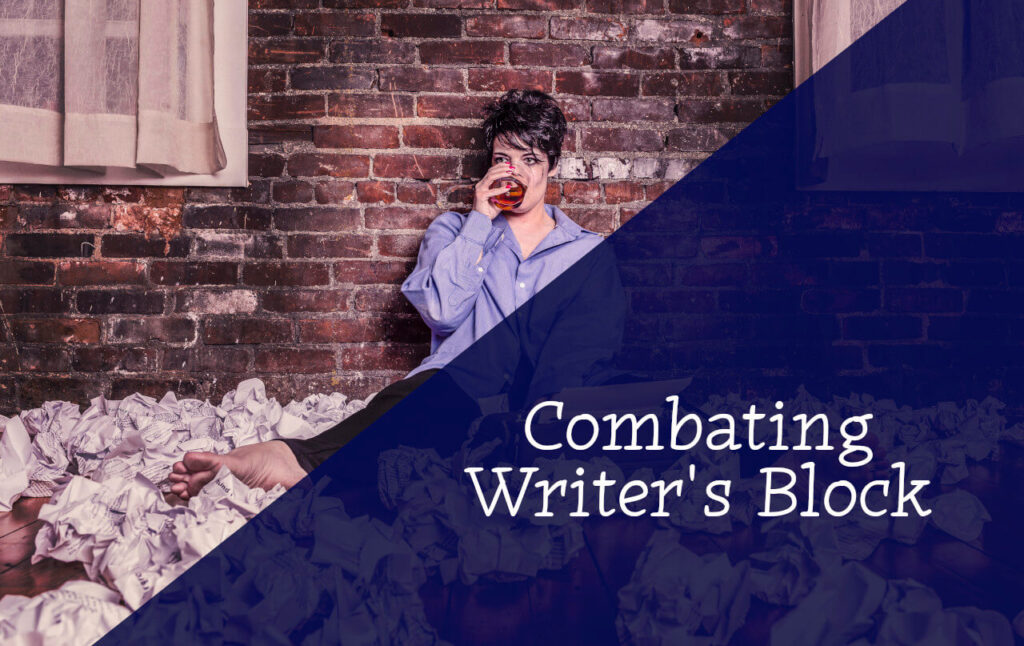So you’ve had a run-in with that most dreaded of maladies: Writer’s Block. The good news is you’re not alone. Most writers at some point in their practice encounter this problem. The great news is that like the common cold there are many effective home remedies you can try to combat this ailment.

What is Writer’s Block?
Before we get into the remedies, let’s talk about what writer’s block is. It’s easier to fix something if we understand what’s causing the issue. The thing is, with writer’s block you still have both the time and ability to write but no drive or inspiration to do so.
Writing well is hard, and there are a number of things that may impede our ability to even try. There are lots of theories about what causes writer’s block, but in my opinion it comes down to two things: fear and exhaustion.
There are so many things to be afraid of in writing. Fear of failure, fear of rejection, and fear of imperfection are just some major ones. And they sneak up on you. I recently had a bout of writer’s block that I attributed to stress. It wasn’t until I started putting together this blog post that I realized I was being blocked by the fear that my recent stories weren’t as good as previous ones.
Writing is mentally exhausting. We sit and think. Then we sit and think and write. Then we sit and think and revise. There are so many aspects of life that we need to consider as we create characters, situations, and entire worlds. Writing is an act of constant reflection and critical thinking. No wonder every once in a while our mind says enough, go take a nap.
Now let’s talk solutions!
How to Combat Writer’s Block
Embrace it.
If you are mentally exhausted or experiencing creative burn out, just take a nap. Okay, maybe not literally (although I am a big supporter of the power nap as a productivity tool), but depending on your level of exhaustion, take a few days or a few weeks off. Seriously. Don’t write anything, and don’t think about writing anything. Let your system recharge. And while you’re recharging, why not take stock of the other aspects of your life? You may find the block doesn’t even have to do with writing but something else in your life that is begging for your attention.
Track your writing habits.
Not only is this a good way to get into a writing routine by having a physical record to keep you accountable, but it is also a great way to figure out when and where you are most productive. You may be surprised by what you learn. I know I sure was. I used to be a morning writer. Until very recently I thought I still was a morning writer, but then I started tracking my writing habits. Every time I had a writing session, I’d make a note of how long I wrote, how much I wrote, the time of day, and how I felt about what I’d wrote. Within a week, I realized not only do I write significantly more at night, but I feel better about it.
Build a support system.
It can be hard kick start ourselves and to keep ourselves accountable. This is where a support group can come in handy. Ideally your support system will be made up of fellow writers, because they’ll understand your struggles and be able to help you get through them. There are different types of writer’s groups you can join or start depending on what sort of help you need. For me, the two most beneficial types of groups are the prompt group and the accountability group. The first forces me to write even when I don’t feel like it and often helps me get through dry patches. And the second makes me articulate goals and keeps me on track so I achieve those goals in a reasonable time frame.
Leave yourself a jumping off point.
Stop writing mid-scene so that when you get back to it the next day you already know how you’re going to start. Much to my chagrin, I resisted this advice for years. It seemed illogical to me. Then I tried it, and it’s been a game changer.
Allow yourself to write poorly.
As my mother would say, accept that writing a first draft is supposed to be like putting bones in a bag: You can sort them out and build skeletons later. Meaning, just get that story down on paper because you’re going to have to revise it regardless of whether it’s jumbled up or well ordered.
Try Freewriting.
If you need a break from your story but want to keep up with your writing habit, freewriting is a good way to do that. It also allows you to sort out your thoughts on paper, which can be a great way to solidify ideas and get yourself back into a better writing flow before taking another stab at that draft.
There isn’t one perfect solution for combating writer’s block. Everyone will take a slightly different approach, and what worked one time won’t necessarily work for you every time. The point is that writer’s block doesn’t have to mean the end of your project or your craft. Perseverance is key. I know you got this.
Do you have any other advice for people struggling with writer’s block? Share it in the comments!
